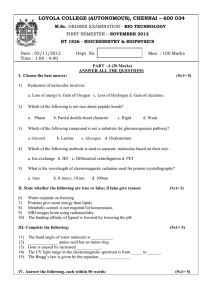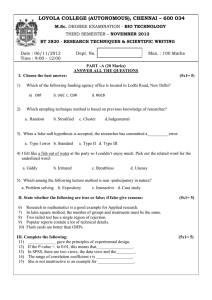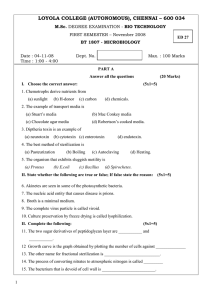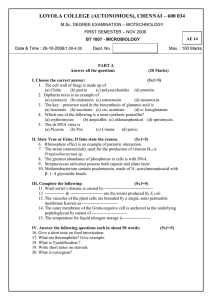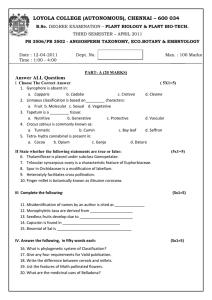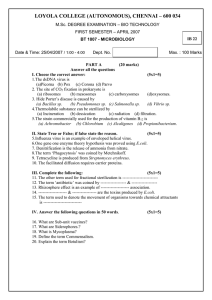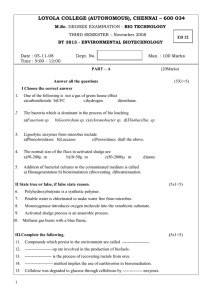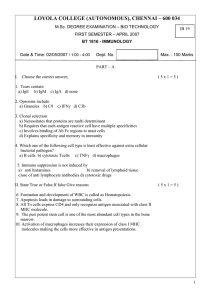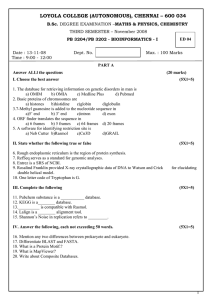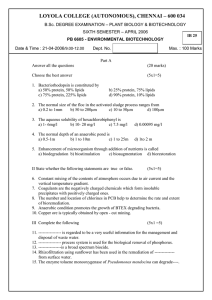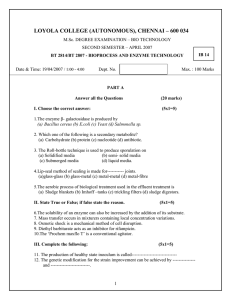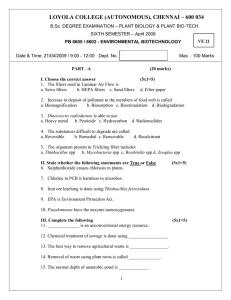LOYOLA COLLEGE (AUTONOMOUS), CHENNAI – 600 034
advertisement
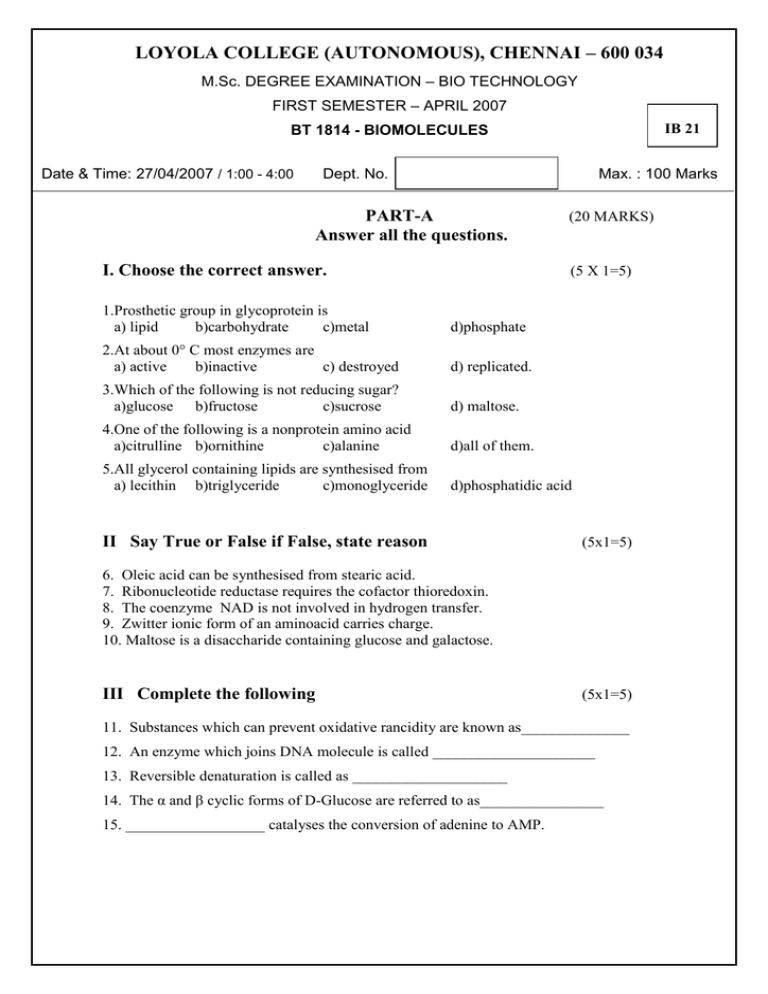
LOYOLA COLLEGE (AUTONOMOUS), CHENNAI – 600 034 M.Sc. DEGREE EXAMINATION – BIO TECHNOLOGY FIRST SEMESTER – APRIL 2007 IB 21 BT 1814 - BIOMOLECULES Date & Time: 27/04/2007 / 1:00 - 4:00 Dept. No. Max. : 100 Marks PART-A Answer all the questions. I. Choose the correct answer. (20 MARKS) (5 X 1=5) 1.Prosthetic group in glycoprotein is a) lipid b)carbohydrate c)metal d)phosphate 2.At about 0° C most enzymes are a) active b)inactive c) destroyed d) replicated. 3.Which of the following is not reducing sugar? a)glucose b)fructose c)sucrose d) maltose. 4.One of the following is a nonprotein amino acid a)citrulline b)ornithine c)alanine d)all of them. 5.All glycerol containing lipids are synthesised from a) lecithin b)triglyceride c)monoglyceride d)phosphatidic acid II Say True or False if False, state reason (5x1=5) 6. Oleic acid can be synthesised from stearic acid. 7. Ribonucleotide reductase requires the cofactor thioredoxin. 8. The coenzyme NAD is not involved in hydrogen transfer. 9. Zwitter ionic form of an aminoacid carries charge. 10. Maltose is a disaccharide containing glucose and galactose. III Complete the following (5x1=5) 11. Substances which can prevent oxidative rancidity are known as______________ 12. An enzyme which joins DNA molecule is called _____________________ 13. Reversible denaturation is called as ____________________ 14. The α and β cyclic forms of D-Glucose are referred to as________________ 15. __________________ catalyses the conversion of adenine to AMP. IV Answer the following, each within 50 words (5X1=5) 16. Saponification number 17. Salting in 18. Isoenzymes 19. Structure of co A 20. Structure of hyaluronic acid PART – B Answer any 5 questions each with in 350 words only (5X8=40) 21.What are enzymes? Describe their classification. 22.Write an account on properties of monosaccharides. 23.Describe the denaturation of proteins. 24.Explain primary structure of proteins. 25.Enumerate the steps involved in the biosynthesis of triacylglycerol and lecithin. 26.Explain a) salvage pathway of purines b) allosteric inhibition. 27.Derive Michaelis –Menten equation. 28.Draw the stucture of a) cholesterol b) plasmalogen c) heparin PART-C d) uracil. (2X20=40) Answer each of the following, within 1500 words 29 a) Describe the classification of lipids .Give an account on properties of fat. (OR) b) Explain the classification of carbohydrates. Describe the structure of cellulose and glycogen. 30 a) b) Describe the structural organization of protein and mention the forces responsible for stabilization (OR) Explain anabolism and catabolism of pyrimidine nucleotides and add a note on regulation. ______________
